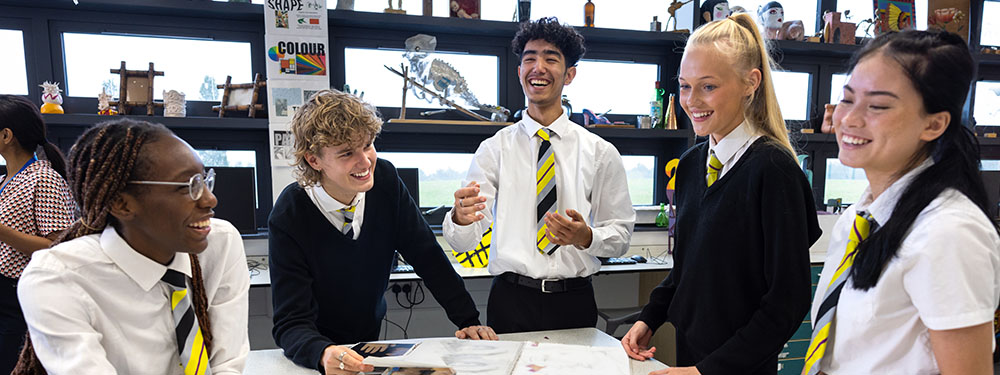
A panel discussion with GEMS Wellington International School leaders of years nine and ten. The full panel discussion video recording can be found here.
Year nine is a key transition point in a student’s journey. For the first time, they are being asked to make decisions which have the potential to alter their future life choices. At this young age, it is vital that students, parents and teachers work together not only for their options, but also as they become increasingly independent.
What does ‘transition’ mean to our leaders responsible for years nine and ten?
Transition from key stage three into four can mean a change in curriculum, friendships, relationships, support networks and many more. There can be a change in focus, as students delve deeper into their understanding and content. They gain a greater understanding of how we move forward together, particularly as we place greater emphasis on the subjects that we enjoy and wish to continue. It is an incredibly exciting time for a range of journeys: pastorally and academically. It’s a time for greater ownership and more control. Although year nine is a key milestone, like any point in a student’s journey, this time represents a fresh start and a new chapter.
Students: ‘what do I do?’
Firstly, ask. There are a range of people surrounding you that are there to support. Of course, your teachers will support and guide you, but it’s also important to speak with your peers, students already in key stage four, parents and family members. However, this is your choice. Don’t make a snap decision based on what your friends want, take all sources of information and combine them into an informed decision. Use data points such as assessments, as well as course information. What is that subject really about? How will you be assessed in it? Where will it lead you? Why are you really making that choice? Are you willing to put the work in? Peer pressure at this point is very real. Try to avoid making decisions purely based on classes and groupings as these can be mixed frequently! Your teachers will draw upon a wide range of data, such as your report comments, parent’s evening comments, attitude to learning and more and will guide you. Look past the short-term benefits of the potential three hours per week of being with your friends and understand you are committing upwards of three hundred hours to this course and your learning. We’re with you every step of the way.
Parents: this is the oldest your child has ever been
As parents, it can be an incredibly difficult time. Your children are growing up, want their independence and freedom, but still very much need you! It’s vital to look at the bigger picture. Whilst a student might have done particularly well all the way through their learning journey, this is a time to reflect and plan carefully. Education is all about steps in a journey. At home, starting early with those open discussions and honest conversations can have a huge impact. Children need safety and security before they can be in the right headspace to make decisions. Be aware that you might be unconsciously biased towards particular subjects and routes. Have a discussion about where the student wants to be and work backwards. It’s vital that the workload is spread across certain days, weeks, months, otherwise burnout is a very real possibility.
A whole student: pastoral and academic transition
Pastoral and academics go together. This is a key pastoral transition, not just about subjects but about a development in understanding of how to make informed choices and decisions. Choice can be reflected in behaviour and attitude. Expectations will increase. Ownership of learning needs to increase. Academic success is one part of what makes a whole student and therefore should not be seen as an isolated element. It is a time of great change as highs and lows are inevitable. There is a whole team around every student to support, but they will need to show more resilience than ever before. Whilst making options choices is a vital set of conversations to have, these conversations should not stop there. Dialogue between all stakeholders is vital. Academically, things are going to become increasingly challenging but being aware that students are not an island means they can ask for help! Although certain members of staff might be more responsible for academics or pastoral, everyone is there to help you as a whole person.
How do you know the transition has been successful?
Students have made informed decisions and there have been few, if any ‘surprises’. It’s vital that students go into any part of the process knowing what to expect. As a school, we try to eliminate as many surprises as possible. If the students are well aware of the opportunities and options on offer, they then have the capacity to make that informed decision. We would never want students to say, “I didn’t know I could do that” or “I didn’t know that was an option”. A successful transition might also be visible through behaviour choices and students feeling they have made the right choice further down the line. But all is not lost if there is regret. Everyone is here to listen and help the best that they can. If students make the effort, they will reap the rewards for years to come.
